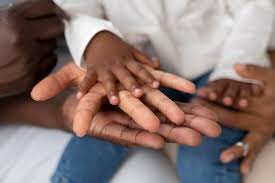
THE LEGAL PERSPECTIVES OF SHIP ARREST AND MARITIME SAFETY
July 16, 2025
TRADEMARK, REGISTRATION AND INFRINGEMENT IN NIGERIA
July 16, 2025Adoption Process in Nigeria
Introduction:
Child adoption and guardianship are very serious concepts due to the nature of rights and privileges that accrue by virtue of the process. It is still an evolving practice and pivotal legal constructs aimed at safeguarding children who are orphaned, abandoned, or whose parents are unable to provide proper care. In Nigeria, the regulation of these constructs is multi-faceted, involving statutory laws, customary practices, and Islamic law. The inconsistencies in law across states, particularly regarding the domestication of the Child’s Rights Act (CRA), have led to procedural confusion and impediments in child protection. Before hand, adoption remained a customary practice for various reasons but especially due to the death of the natural parents of the child and only occurred informally between relatives. Adoption creates a parental relationship between the child and third party and should not be confused with the other practice of fostering.fostering involves giving parental care to a child who is not one’s natural or legally adopted child. Thus this article aims to offer a unified understanding of the law and acceptable procedures for adoption and guardianship in Nigeria.
The Adoption Process in Nigeria plays a crucial role in ensuring that children in need of permanent homes are placed with loving families. Understanding the Adoption Process in Nigeria is essential for prospective parents.
Speak to a Family Lawyer
Legal Framework Governing Adoption:
In this guide, we will explore the Adoption Process in Nigeria and the legal requirements involved in making a child a part of your family.
Adoption in Nigeria is primarily regulated by the following:
- Child’s Rights Act, 2003, applicable in the Federal Capital Territory and in states that have enacted it;
- State-specific Adoption Laws, such as those of Lagos, Anambra, and Rivers States;
- Customary and Islamic Law, which remain influential, especially in Northern Nigeria.
- International Conventions such as United Nation, African Charter on right and welfare of the child
- Regulatory Agencies and Judicial precedent.
STATUTORY ADOPTION:
Adoption can be formal or informal based on the circumstances though specifically, both are legally allowed in so far as it complies with the law.
Prior to 1965 there was no statutory provision for adoption in any part of Nigeria.This lacuna in the Law created hardship in determining the legal relationship between persons who wrongly believed that they had adopted a child.
The child’s Rights Act, 2003 makes provision for adoption and this is reflected in the Laws of States which have passed similar legislation.
Speak to a Family Lawyer
ADOPTION:
Adoption is the legal process by which a child becomes the lawful child of another individual, which creates a parent-child relationship between the adopted child and the adoptive parents or couple by terminating the rights of the biological parents. It may be added that adoption severs the legal relationship between the child and the natural parents or guardians.
Hence, understanding the Adoption Process in Nigeria is vital for anyone considering this life-changing decision.
Eligibility and Conditions for Adoption ( Adoption Process in Nigeria )
The eligibility criteria outlined in the Adoption Process in Nigeria can vary based on the state, but certain fundamental requirements remain consistent.
- Under the CRA and state laws, adoption is subject to the following conditions:
- The applicant must be at least 25 years of age and at least 21 years older than the child.
- If the applicant is married, both spouses must jointly adopt, except in cases of legal separation or mental incapacity.
- The child must be under 18 years and declared legally adoptable.
- Income requirements
- Residency requirements: which includes if the Applicant is married both spouses shall be resident in Nigeria.
Wherein the requirements are met and application must first be made to ministry of Youth and Development or any other agency so authorized by law, and then an investigation will be made by the ministry.
Speak to a Family Lawyer

Consent is required from:
- The child (if above 14 years);
- Biological parents or guardians, unless they are deceased or incapable;
- The child welfare officer assigned to the case.
Procedural Steps in Adoption
The following steps are standard in the adoption process:
Being aware of the specific steps in the Adoption Process in Nigeria will help streamline the experience for families.
- Application to the Family Court or appropriate authority in the state.
- Pre-adoption investigation by social welfare officers to assess suitability.
- Filing a petition in court along with supporting documents, such as medical reports, income verification, and identity documents.
- Court hearing, where the best interests of the child are paramount.
- Issuance of an adoption order, if all conditions are satisfactorily met.
- Recommendation by welfare officer
- Post-adoption follow up
Some states require a probationary period, during which the child lives with the adoptive parents under supervision
Legal Framework and Procedure for Guardianship:( Adoption Process in Nigeria )
Guardianship, unlike adoption, does not permanently sever the legal relationship between a child and biological parents. The applicable laws include:
- Child’s Rights Act 2003
- Guardianship of Infants Act, Cap G5 LFN 2004
- Customary and Islamic Law (particularly in non-CRA states
Speak to a Family Lawyer
A guardian may be appointed:( Adoption Process in Nigeria )
- By a will or written declaration of a parent;
- By the court, especially when the parents are deceased or unfit;
- Occasionally, by the child, where allowed under Islamic or customary law and where the child has attained maturity.
The guardian assumes responsibility for the care, custody, education, and property of the child, often until the child reaches legal adulthood.
Adoption vs. Guardianship: A Comparative Analysis
Adoption involves the complete transfer of parental rights and responsibilities from the biological parents to the adoptive parents, while guardianship confers legal responsibility for the care and upbringing of the child without terminating the rights of the biological parents. Adoption is typically permanent, whereas guardianship may be temporary or limited in scope.
-
- Challenges and Legal Gaps
- Despite legislative efforts, several challenges persist:
Barriers related to the Adoption Process in Nigeria can often deter potential adoptive parents from proceeding.
- Non-uniform application of the CRA across Nigerian states;
- Lack of public awareness of legal procedures for adoption and guardianship;
- Customary resistance to formal adoption, especially in rural communities;
- Prolonged judicial processes and bureaucratic delays;
- Incidents of child trafficking, often disguised as informal adoptions;
- Limited oversight by child welfare agencies due to resource constraints.
- Lack of genetic knowledge on the health of the child to be adopted
- Corruption and fraudulent practice
- Lack of Education
Recommendations:
Finally, engaging stakeholders in discussions about improving the Adoption Process in Nigeria is key to reform.
To address the highlighted issues, several strategies have to be implemented and a synergy between all the stakeholders involved, that is the government, adoption agencies and prospective adoptive parents will be necessary. This collaborative efforts are paramount and pertinent to making policy reforms.
The following measures are proposed to ensure the free flow of adoption process are:
- Universal domestication of the CRA across all states.
- Harmonization of adoption laws to eliminate inconsistencies.
- Capacity-building for welfare officers, judges, and law enforcement.
- Public sensitization campaigns to reduce stigma and promote legal adoption.
- Stricter regulations and penalties for illegal adoptions and trafficking.
- Adoption of international practices to allow for international adoption
- Offering post-adoption care for the family and child.
- Conclusion( Adoption Process in Nigeria )
The legal processes of child adoption and guardianship are essential tools for child welfare in Nigeria. However, fragmented legislation, cultural attitudes, and procedural inefficiencies hinder their effectiveness. A unified legal framework, driven by the best interests of the child and informed by both global and local realities, is vital for progress in this domain.
A robust understanding of the Adoption Process in Nigeria will empower families to navigate the complexities involved.
Speak to a Family Lawyer
References
- Child’s Rights Act, 2003 (Nigeria).
- Guardianship of Infants Act, Cap G5 LFN 2004.
- Lagos State Adoption Law, 2008.
- United Nations Convention on the Rights of the Child, 1989.
- Ebigbo, P. O. (2003). “Adoption practice in Nigeria.” Child Abuse Review, 12(4), 248–255.
- Okoli, A. C. (2014). “The legal regime of child adoption in Nigeria.” Journal of Law and Policy Review, 2(1), 33–47.
AUTHORS PROFILE:
The importance of the Adoption Process in Nigeria cannot be overstated, as it directly impacts children’s futures.
Charity Anijekwu Esq is an Associate in our Employment and Labour Relations, Insolvency and family law practice groups. She mostly advises on restructuring of companies, family and employment matters.
CLICK THE LINK BELOW TO DOWNLOAD THIS ARTICLE:
For further insights on the Adoption Process in Nigeria, we encourage readers to explore additional resources.
DOWNLOAD OUR ARTICLE ON ADOPTION OF A CHILD
For those interested in the intricacies of the Adoption Process in Nigeria, we offer consultations and support.
READ ALSO



6 Comments
Very detailed and educative article.
That’s nice
Very nice article, well put together!
Nice one, Charity Anijekwu esq.
What a lovely article. Keep it up.
Nice article